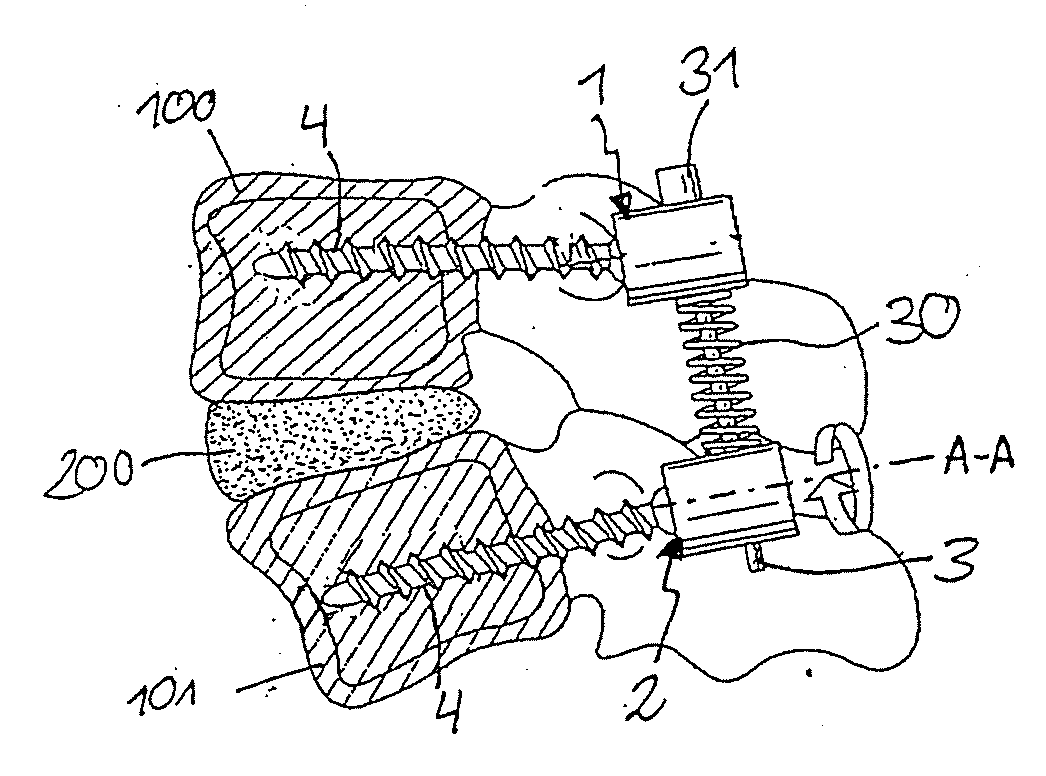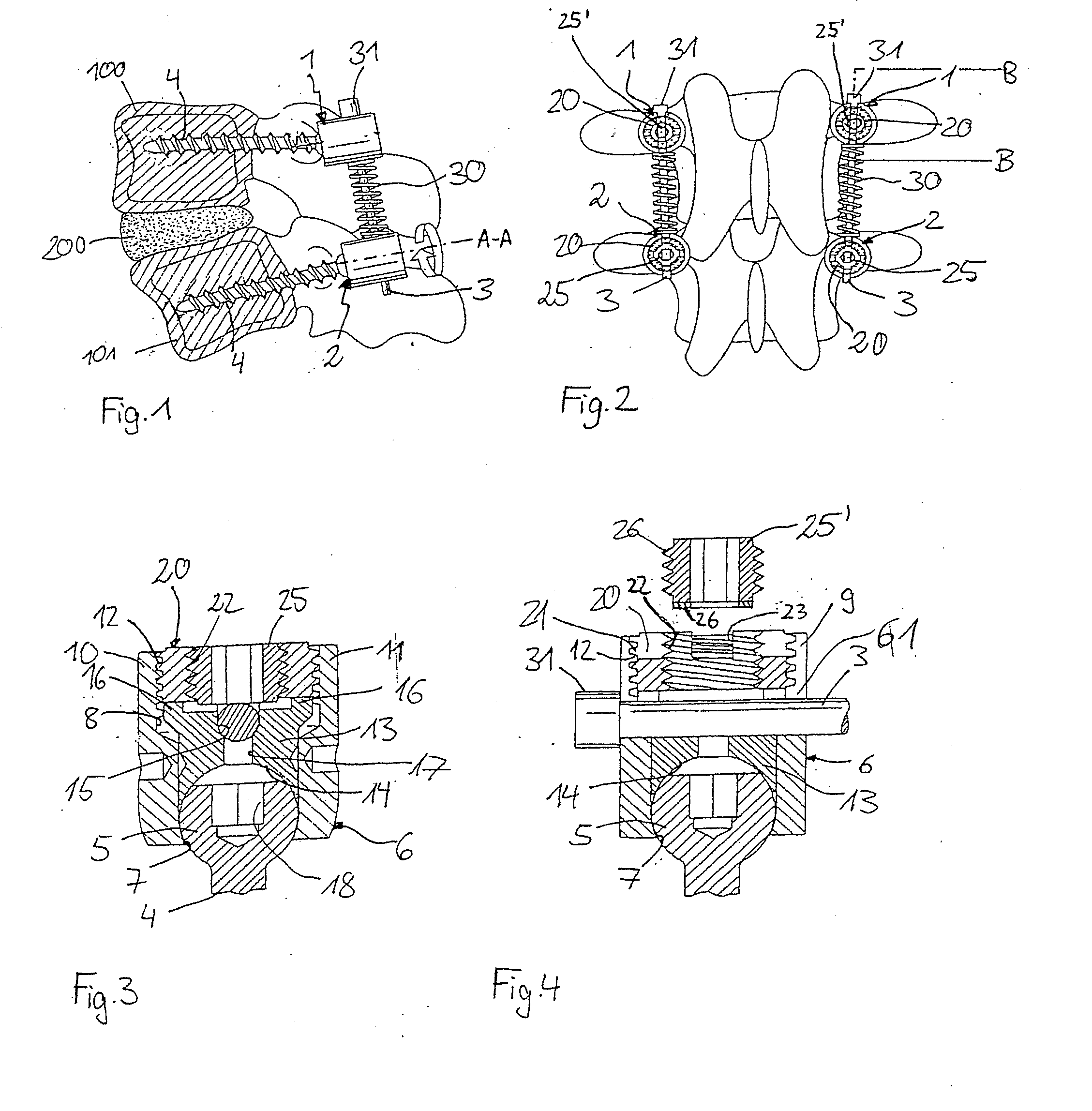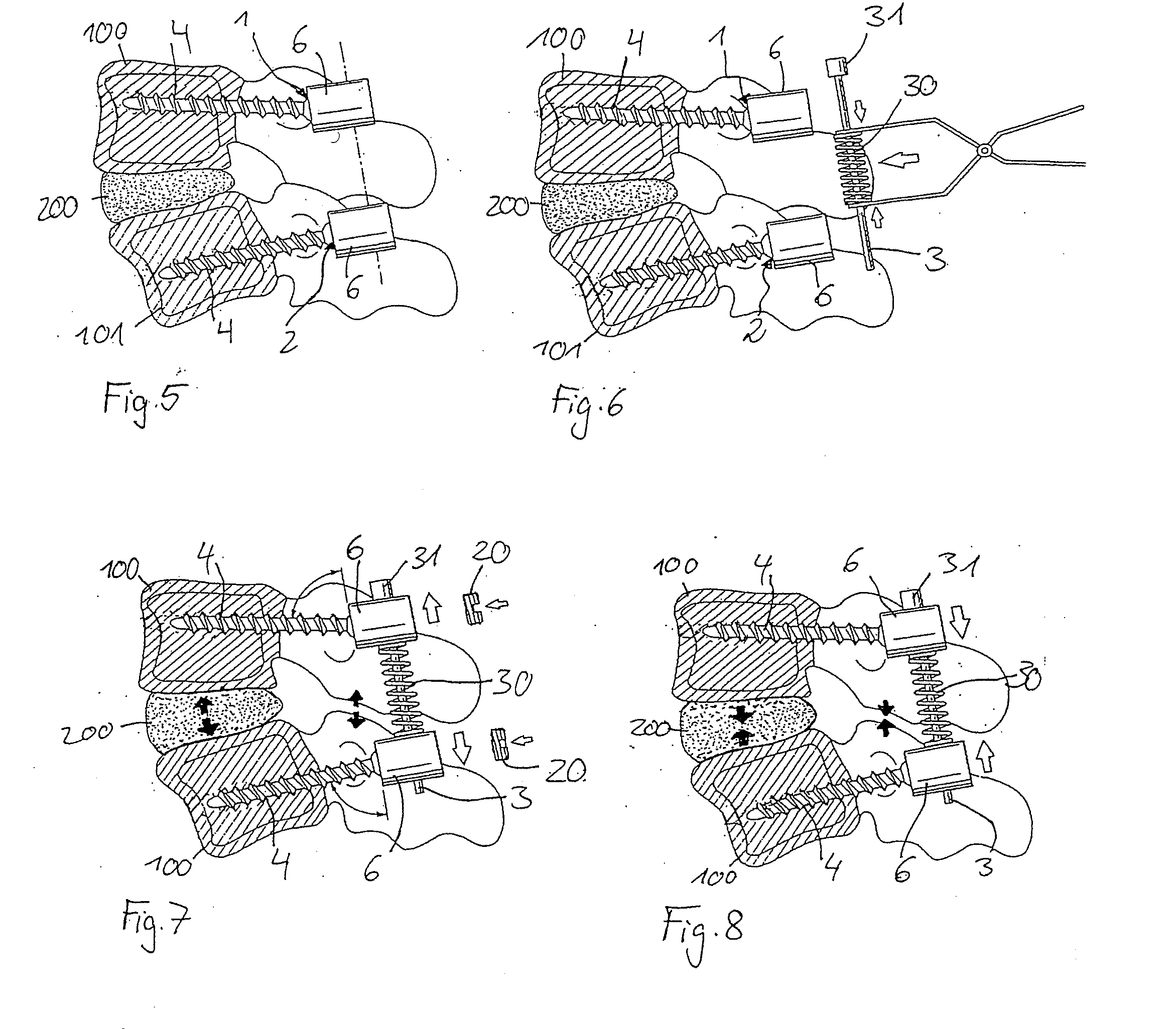Dynamic stabilization device for bones, in particular for vertebrae
a stabilization device and bone technology, applied in the field of bones, can solve the problems of unsatisfactory simulation of the properties of a natural intervertebral disc, unnatural stress of the vertebral column adjacent to the stiffened section, and inability to achieve the effect of guiding stability of the movement segment of the vertebral column by using a band of this kind
- Summary
- Abstract
- Description
- Claims
- Application Information
AI Technical Summary
Benefits of technology
Problems solved by technology
Method used
Image
Examples
Embodiment Construction
Including Preferred Embodiments
[0025]The invention is now described in detail with reference to the embodiment illustrated in FIGS. 1 to 4. A stabilization device in accord with one embodiment of the present invention has two polyaxial pedicle screws 1, 2 and a rod 3 connecting them for stabilizing two adjacent vertebrae 100, 101. The stabilization device further contains a spring element 30, provided between the two pedicle screws.
[0026]The pedicle screws 1, 2 preferably are constructed as illustrated in FIGS. 3 and 4. A pedicle screw 1, 2 has a screw element with a threaded shank 4 with a bone thread and a head 5 shaped like a segment of a sphere, which is connected to a receiving part 6. The receiving part 6 has on one of its ends a first bore 7, aligned symmetrically to the axis, the diameter of which is larger than that of the threaded section of the shank 4 and smaller than that of the head 5. It further has a coaxial second bore 8 which is open at the end opposite the first b...
PUM
 Login to View More
Login to View More Abstract
Description
Claims
Application Information
 Login to View More
Login to View More - R&D
- Intellectual Property
- Life Sciences
- Materials
- Tech Scout
- Unparalleled Data Quality
- Higher Quality Content
- 60% Fewer Hallucinations
Browse by: Latest US Patents, China's latest patents, Technical Efficacy Thesaurus, Application Domain, Technology Topic, Popular Technical Reports.
© 2025 PatSnap. All rights reserved.Legal|Privacy policy|Modern Slavery Act Transparency Statement|Sitemap|About US| Contact US: help@patsnap.com



